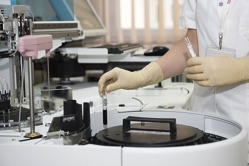
When:Tuesday, July 30, 2019
Join Women In Bio-Capital Region to discuss one of the most important elements of entrepreneurship – how to determine whether to bring start-up team members in-house (and creatively convince them to work for your startup), or utilize vendors and contractors (and vet and manage them). We are excited to present an excellent panel of strong female professionals with diverse expertise in launching and facilitating successful businesses in the biotech space. Our panel will feature: Emily English, Ph.D. and CEO of Gemstone Biotherapeutics; Anne Balduzzi, Director of Advisory Services at TEDCO; and Maria Granovsky, Ph.D., J.D., and founder of Swimming Otter Communications. Dr. Ethel Rubin, Entrepreneur-in-Residence at BioHealth Innovation, Inc. will be our moderator for the evening, helping to highlight the panelists’ inspirational stories and cautionary tales of how to successfully start your own business (typically with little funding). Come prepared to listen, learn, ask questions, and have the opportunity to meet the leading ladies of our entrepreneurship-focused WIB evening. We can’t wait to see you there!











